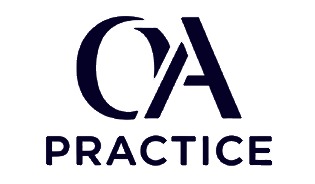D027 Advanced Pathopharmacological Foundations - Set 3 - Part 1
Test your knowledge of technical writing concepts with these practice questions. Each question includes detailed explanations to help you understand the correct answers.
Question 1: A patient with untreated hypothyroidism presents with pale, puffy face and cold intolerance. Which medication provides appropriate hormone replacement for this thyroid disorder?
Question 2: During chickenpox assessment, a child's rash progresses through multiple stages. Which antiviral medication reduces severity when given early in the disease course?
Question 3: A patient with Alzheimer's disease in the moderate stage requires assistance with daily activities. Which symptom pattern characterizes this middle stage of disease progression?
Question 4: In tuberculosis treatment, which medication combination represents the standard initial therapy for active disease requiring months of treatment?
Question 5: A diabetic patient needs mealtime insulin coverage with minimal hypoglycemia risk. Which characteristic makes insulin aspart preferable to regular insulin?
Question 6: During celiac disease management, a patient must avoid specific grains permanently. Which grain substitution is safe for patients with gluten intolerance?
Question 7: A patient with parathyroid dysfunction develops tetany and muscle twitching. Which laboratory finding confirms hypoparathyroidism as the cause of these symptoms?
Question 8: In sickle cell disease prevention, what specific intervention helps infants avoid life-threatening pneumococcal infections?
Question 9: A nurse monitors a patient with pleural effusion from different causes. Which medication specifically treats effusion caused by pulmonary embolism?
Question 10: During myasthenia gravis treatment, which intervention provides temporary improvement by removing antibodies from the patient's circulation?
Question 11: A patient with depression cannot tolerate SSRIs due to side effects. Which alternative antidepressant class targets different neurotransmitter systems?
Question 12: In COPD exacerbation prevention, which specific patient characteristic makes macrolide antibiotics particularly beneficial for reducing episodes?
Question 13: A patient with chronic kidney disease develops anemia despite adequate nutrition. Which hormone deficiency causes this anemia in kidney disease?
Question 14: During asthma management in children, which controller medication avoids systemic corticosteroid effects while maintaining disease control?
Question 15: A patient with Graves' disease develops exophthalmos. Which pathophysiological mechanism causes this characteristic eye finding in hyperthyroidism?
Question 16: In pneumonia diagnosis, what sputum gram stain finding indicates Streptococcus pneumoniae as the causative organism?
Question 17: A patient with postural orthostatic tachycardia syndrome undergoes tilt table testing. What physiological response confirms this diagnosis?
Question 18: During influenza prevention, which population should receive annual vaccination as the primary prevention strategy against seasonal flu?
Question 19: A patient with beta thalassemia major requires lifelong treatment. What intervention allows more normal growth and development in affected children?
Question 20: In heart failure classification, what distinguishes systolic from diastolic dysfunction based on the heart's mechanical problem?
Need Guaranteed Results?
Our exam support service guarantees you'll pass your OA on the first attempt. Pay only after you pass!
Get Exam Support